
Aktuelles - Archiv

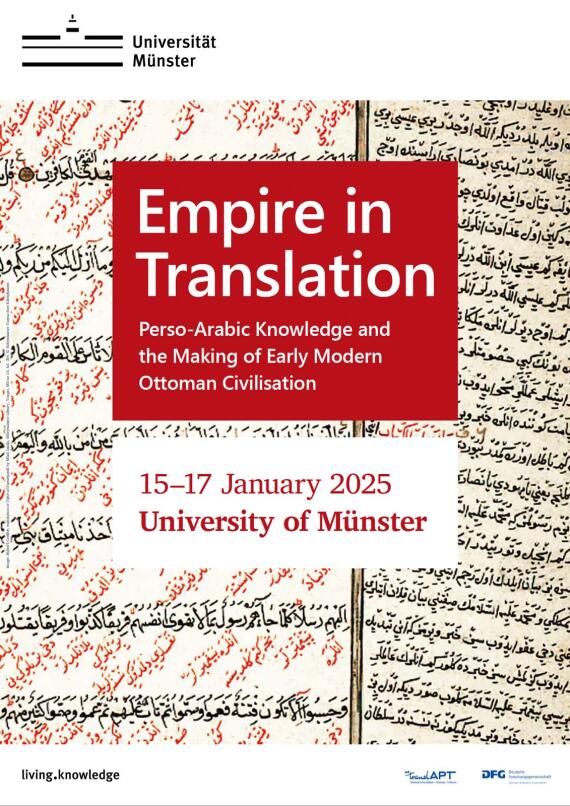
Workshop "Empire in Translation": Perso-Arabic Knowledge and the Making of Early Modern Ottoman Civilisation

Ringvorlesung "Geschichte und Kultur der Region Palästina"

Studis für Studis - Studierende berichten von ihren Erfahrungen in Praktika und Auslandsstudium

Workshop zu chinesischer und arabischer Kalligraphie

Workshop: Recent Perspectives on Southeast Asian Colonial Photography

Halloween Night
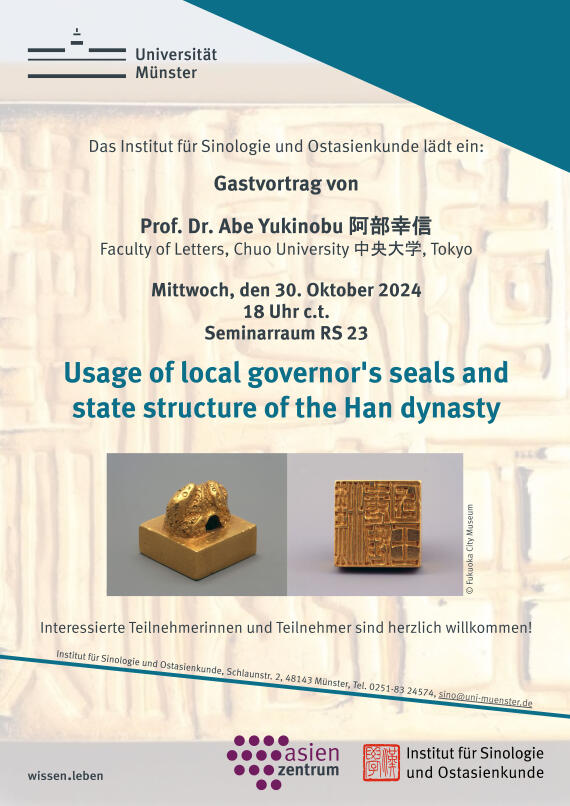
"Usage of local governor's seals andstate structure of the Han dynasty"

Mitgliederversammlung Asienzentrum
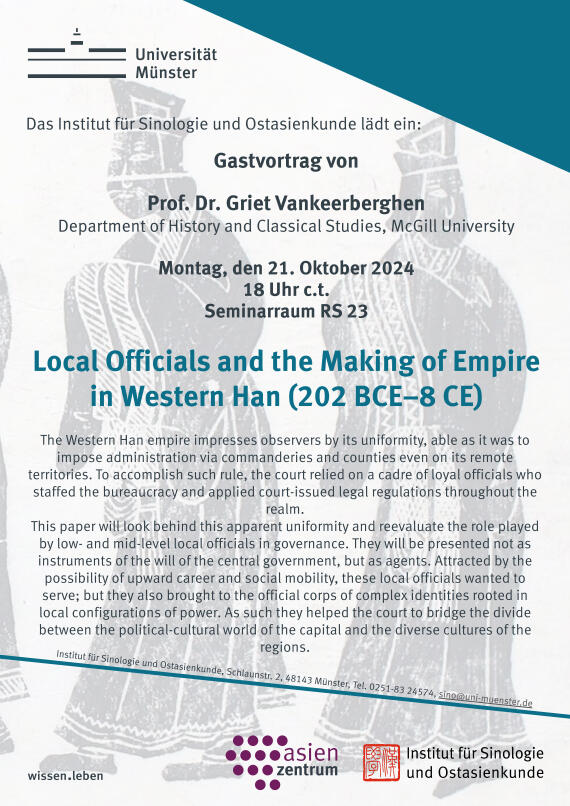
"Local Officials and the Making of Empire in Western Han (202 BCE–8 CE)"

Konferenz „Textual Transmission in the Islamic Manuscript Age“ in Münster
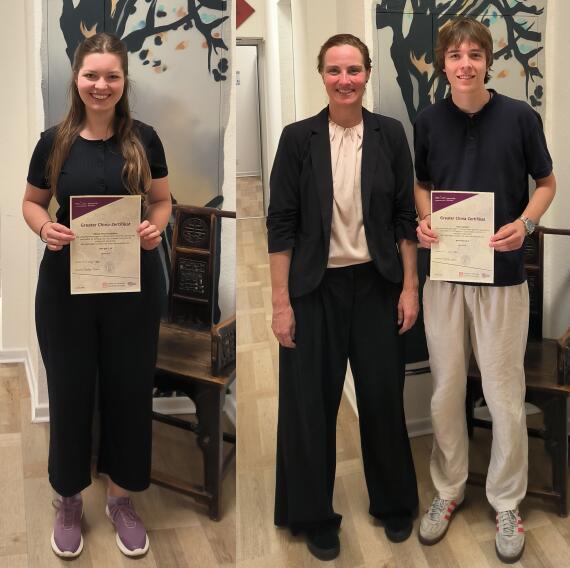
Übergabe der ersten Greater China-Zertifikate
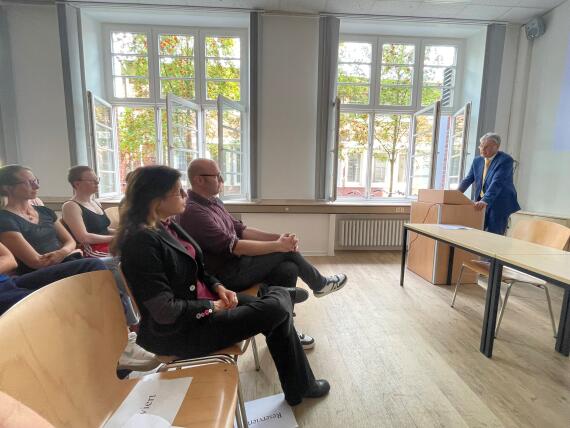
Erfolgreiche Veranstaltung: Wissenschaftlich Kooperieren mit China

Legacy of Shāh ʿAbbās’s Book Endowments: Kufic Qur’āns with alleged Twelver Imām signatures

Guest Lecture „Palestinian Magical Realism as Resistance Literature“

Das moderne China und der "Westen": Begriffsgeschichtliche Aspekte eines Spannungsfelds
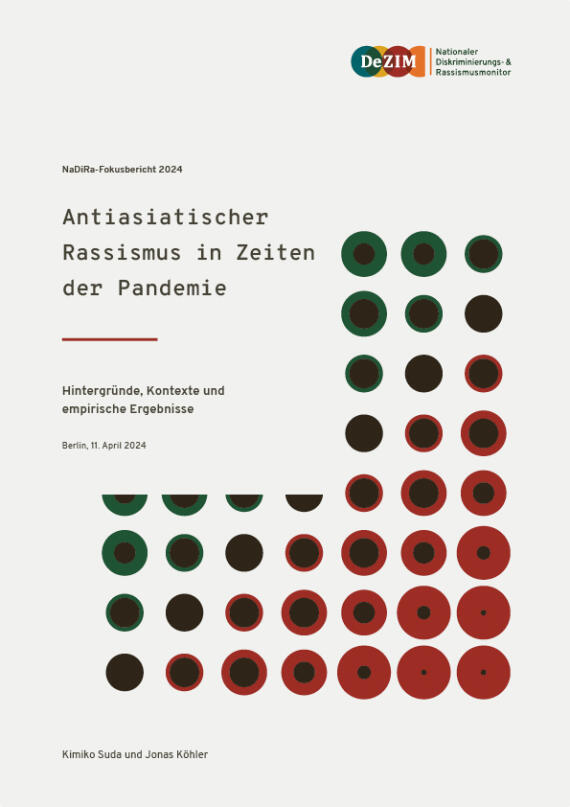
Fokusbericht Antiasiatischer Rassismus in Zeiten der Pandemie
Religion-based Family Laws, Corporate Kinship, and Wealth Accumulation in Modern India: a Sociological Investigation
Prof. Christel Gärtner und Prof. Matthias Casper laden zu einem Vortrag von Prof. Anindita Chakrabarti ein. Frau Chakrabarti ist Professorin für Soziologie am Department of Humanities and Social Sciences an der IIT Kanpur und derzeit Gastwissenschaftlerin am Excellenzcluster Religion und Politik. Ihr Forschungsbereich liegt auch im Feld der Rechts- und Religionswissenschaften.
Am Dienstag, den 28.05.2024, um 18:00 Uhr wird sie einen Vortrag zum Thema "Religion-based Family Laws, Corporate Kinship, and Wealth Accumulation in Modern India: a Sociological Investigation" halten. Der Vortrag findet im Clustergebäude, Johannisstr. 4, Raum JO 101, statt. Die Teilnahme ist auch via Zoom möglich.
Abstract
In India, religion-based family laws (also referred to as personal laws) function within the constitutional guarantee of religious freedom (articles 25-30). But they operate within a futuristic promise of a Uniform Civil Code (UCC) also enshrined in the directive principles of the Constitution. In post-independence India, the UCC which is supposed to replace diverse religion-based family laws has become a short hand for gender justice, resolutely opposed to religious obscurantism in general and ‘Muslim misogyny’ in particular. In the recent decades Muslim personal law has been the cynosure of the debate on UCC and gender justice. Decentring the debate from an abstract notion of gender to the workings of family, kinship, and wealth transfer, the lecture draws attention to the intricacies of law in practice. Thereby it shows how the ideas of legal pluralism can offer a framework to reimagine the binary between cultural relativism of family laws and a statist UCC based on the ideal of ‘one nation, one law’.

Japan Society for the Promotion of Science (JSPS) - Postdoctoral Fellowships

Eröffnung des Asienzentrums

Elections made in India: die indische Wahl für deutsche Augen verstehen lernen

Das Logo des Asienzentrums ist gefunden!










